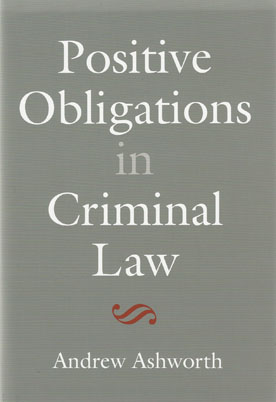
This book offers a set of essays, old and new, examining the positive obligations of individuals and the state in matters of criminal law.
The centrepiece is a new,extended essay on the criminalisation of omissions examining the duties to act imposed on individuals and organisations by the criminal law, and assessing theirmoral and social foundations. Alongside this is another new essay on the states positive obligations to put in place criminal laws to protect certain individual rights.
Introducing the volume is the authors much-cited essay on criminalisation 'Is the Criminal Law a Lost Cause?'. The book sets out to shed new light on contemporaryarguments about the proper boundaries of the criminal law, not least by exploring the justifications for imposing positive duties (reinforced by the criminal law) onindividuals and their relation to the positive obligations of the state.